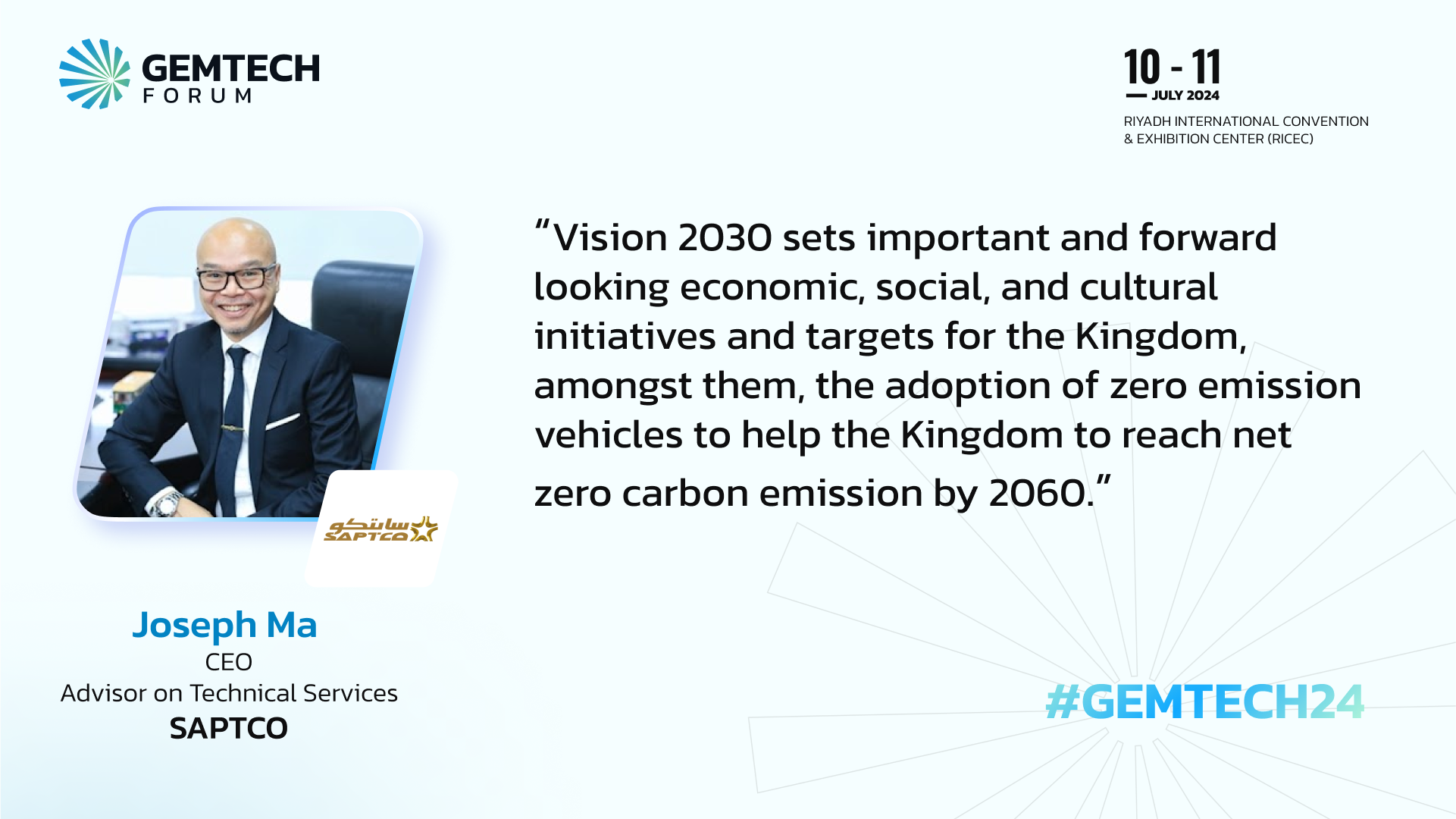We are delighted to present a Q&A session with Joseph Ching Yuen Ma, CEO Advisor on Technical Services at the Saudi Arabia Public Transport Company (SAPTCO) and a distinguished urban planner with nearly four decades of international experience in urban and transportation planning across various regions, including the UK, China, Asia Pacific, and the Middle East. With esteemed memberships in professional bodies such as the Royal Institute of Chartered Surveyors and the Royal Town Planning Institute, Joseph brings a wealth of expertise to the table.
Mr Joseph leads the development of green and smart mobility strategies within SAPTCO for aligning with the ambitious sustainability objectives outlined in the Kingdom of Saudi Arabia's Vision 2030. His role involves advising governmental organizations such as the Ministry of Transport and the Transport General Authority on sustainable transportation initiatives, overseeing technical input to major projects like NEOM and Al Ula, and fostering collaborations with stakeholders to drive green mobility transformations. Prior to joining SAPTCO, Joseph was working with Shenzhen Bus Group, leading the successful electrification of 6,000 buses and 5,000 taxis resulting in Shenzhen Bus becoming the first public transport operator to operate a 100% electric bus and taxi fleet.
In this enlightening Q&A session, Joseph addresses pressing questions on the integration of electric vehicles (EVs) into transportation systems, the metrics cities should track to gauge the success of green mobility initiatives, exciting developments in electric transportation beyond personal cars, and Saudi Arabia's strategic positioning in the global shift towards EV adoption in alignment with Vision 2030.
#GEMTECH: You've worked in vastly different cultural contexts. How does a planner understand and accommodate cultural preferences and needs when designing transport systems that promote EV adoption?
#Joseph: Mobility is a universal need that knows no cultural boundaries. From the beginning of human history, we have roamed to gather and hunt, evolving to traveling on camels, horses, for trading, and to the modern time with different modes of transportation.
As an urban planner, one of our professional duties is to make cities convenient and hospitable and transportation is a key component for achieving this. But as lifestyle aspiration changes, healthy living has also become an important priority, and this is where EV plays an important role. In cities around the world, major health hazards caused by traffic noise and air pollution are calling for the government to replace Internal Combustion Engine (ICE) vehicles with EVs as they produce zero tailpipe emission and almost zero noise emission. Moreover, EVs also generate no engine heat emission reducing heat island effect on city roads and neighbourhoods.
#GEMTECH: Beyond reducing emissions, what are some lesser-known metrics that cities should track to measure the success of their green and smart mobility initiatives?
#Joseph: Some of the equally important metrics cities are monitoring include health benefits due to reduction in emissions, improvement of economic productivity due to reduction in traffic congestion, increase of footfalls for street level retails, reduction in heat island effect for urban areas, etc. And I would not to call these lesser-known metrics as they are part and partial any green and smart mobility initiative.
#GEMTECH: What are the most exciting developments in electric transportation outside of personal cars (e.g., buses, commercial vehicles, micromobility)?
#Joseph: Replacing ICE vehicles with EVs may eliminate some of the urban pollution issues, but it does not resolve the problem of congestion which is also a key factor affecting the quality of life and economic productivity of a city. Hence, cities around the world are now investing in comprehensive public transportation systems, to encourage their residents not to drive their private cars for daily activities. To do that public transportation has to be seamless, green, convenient, safe, almost door-to-door which is where first and last mile micro-mobility solutions such as shared bikes, scooters, travelators, and escalators come in. Of course, providing safe and all-weather protection for pedestrians are critical factors for success also.
#GEMTECH: How can Saudi Arabia leverage its Vision 2030 economic transformation plan to position itself as a major player in the development and adoption of electric vehicles?
#Joseph: Vision 2030 sets important and forward looking economic, social, and cultural initiatives and targets for the Kingdom, amongst them, the adoption of zero emission vehicles to help the Kingdom to reach net zero carbon emission by 2060.
Within the Kingdom, electric vehicles are being commissioned and deployed by many giga projects, Royal Commissions, as well as municipalities.
The Government is also investing in EV and charging infrastructure companies which would help speed up the adoption of EVs.
#GEMTECH: How can events like GEMTECH Forum influence government policy towards the development and adoption of future mobility solutions?
#Joseph: Events such as GEMTECH provide important platforms for exchanges and deepening the understanding of green and smart mobility.

